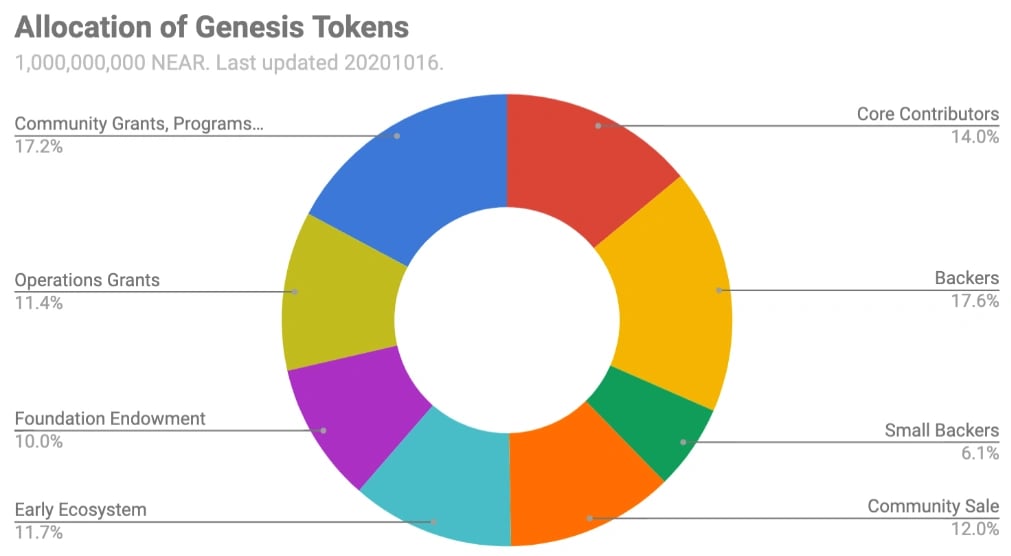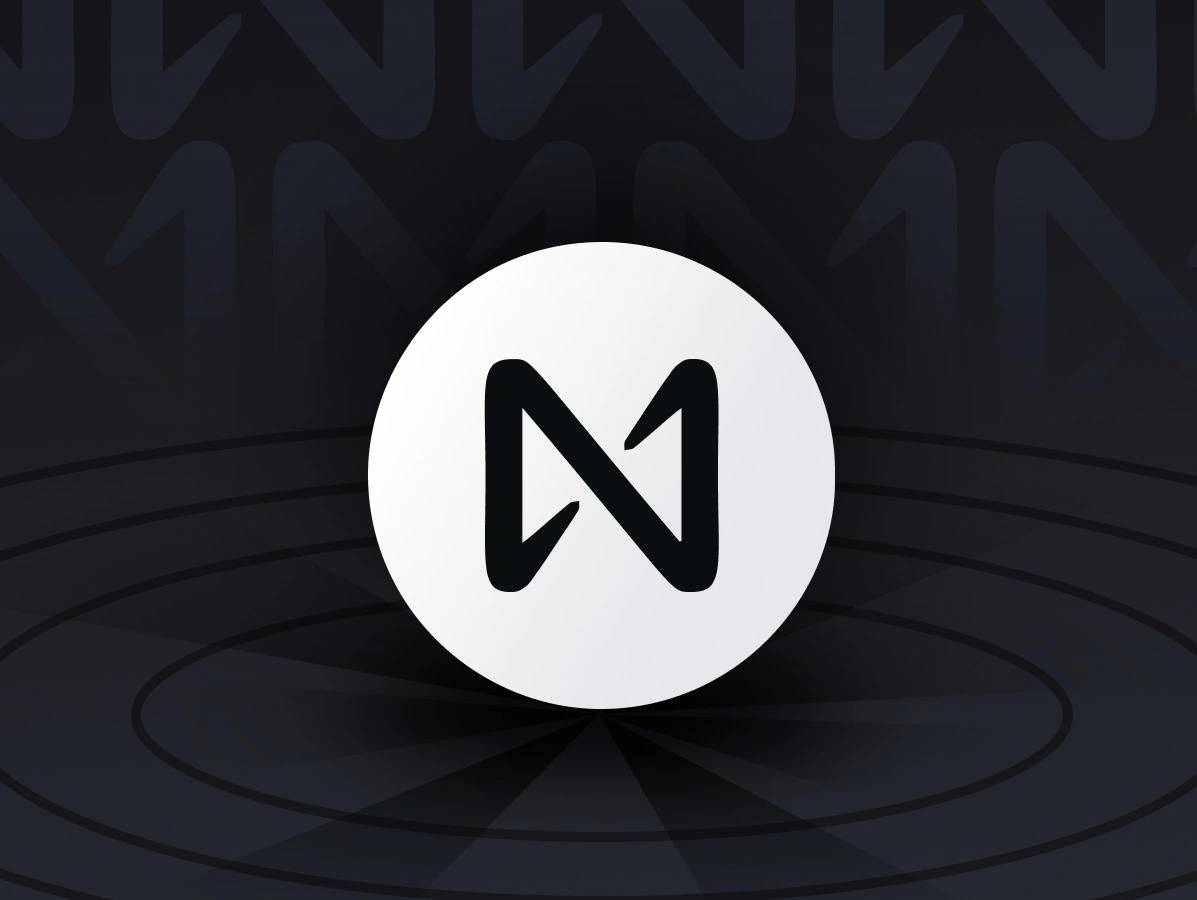Subscribe to wiki
Share wiki
Bookmark
NEAR (token)
The Agent Tokenization Platform (ATP):Build autonomous agents with the Agent Development Kit (ADK)
0%
NEAR (token)
NEAR token is the native cryptocurrency of the Near Protocol, a Layer 1 public blockchain based on Proof-of-Stake where decentralized applications can be built. The token is used for paying transaction fees, and for storage, and it can be staked by holders to participate in validating transactions and reaching network consensus. [1][2][3]
Tokenomics
1,000,000,000 NEAR tokens were created at Genesis on April 22, 2020. They have the following allocation: [2] [4]
- 17.20% to Community Grants and Programs,
- 14.00% to Core Contributors
- 12.00% to Community Sale
- 11.76% to Early Ecosystem
- 11.40% to Operations Grants
- 10.00% to Foundation Endowment
- 17.6% to Backers,
- 6.1% to Small Backers.

5% of additional supply is issued each year to support the network as epoch rewards, of which 90% goes to validators (4.5% total) and 10% to the protocol treasury (0.5% total). 30% of transaction fees are paid as rebates to contracts that interact with a transaction, while the remaining 70% are burned. [1]
Validators
Rewards
Validators are paid a fixed 90% of around 5% of the total supply annualized (the other 10% goes to Protocol Treasury). Rewards are distributed per epoch, every half a day. Each validator receives a reward proportional to their participation. As a validator stakes, occupied seats are determined via a simple auction. After each epoch finishes, the validator will be evaluated based on how many blocks and chunks were produced versus the expected production. [7]
If it’s below 90% of what’s expected, the validator is considered offline/unstable, won’t get any rewards, and will be removed from the coming epoch’s validation (i.e., force unstaked). Validators with at least 90% online presence will receive rewards that grow linearly, with 100% of the reward given to those with a 99% or above online presence. [7]
Delegation
Validators can receive $NEAR to stake from third parties via Delegation. NEAR Protocol enables delegation via smart contracts. Validators who want to accept delegation can create a special contract and allow users who don’t want to run their nodes to deposit their $NEAR into it. By doing so, funds deposited into that contract are available to its creator for use as part of their stake. [7]
Utility
Securing the Network
NEAR Protocol is a proof-of-stake (PoS) network, meaning resistance to various attacks comes from staking NEAR. Staked NEAR represents the decentralized server infrastructure that maintains the network and processes transactions for applications and users on NEAR. Rewards for providing this service are received in NEAR. [8]
Providing a Unit of Account
NEAR is used for price computation and storage on the NEAR infrastructure. The network charges transaction fees in NEAR to process changes and transactions. [8]
Medium of Exchange
NEAR can be used to transfer value between NEAR applications and accounts. Applications can use NEAR to charge for various functions, like access to data or other complex transactions. Entities can also easily exchange NEAR between each other, without the need for trusted third parties to clear and settle transactions. [6][8]
Bitwise Proposes NEAR-Based ETF
In May 2025, Bitwise Asset Management submitted a regulatory filing with the United States Securities and Exchange Commission (SEC) requesting approval to launch the Bitwise NEAR Digital Asset Trust. The proposed fund is designed to provide direct exposure to the NEAR token, the native asset of the NEAR Protocol blockchain, through a spot exchange-traded fund (ETF) structure.
The application was filed during increased trading activity and price appreciation associated with the NEAR token. According to the filing, the trust would allow institutional investors to access NEAR without engaging in direct custody or handling of the asset.
Bitwise’s proposal outlines several network features contributing to NEAR’s current use within its ecosystem. These include its function as a transaction fee medium, protocol governance tool, and decentralized application deployment component. The filing also references technical features such as support for WebAssembly-based smart contracts, mechanisms for chain abstraction, and account aggregation as part of the protocol’s operational architecture.
As of the time of submission, the SEC had not issued a formal response or timeline for review. The proposal reflects ongoing interest in regulated investment vehicles linked to digital assets beyond established tokens like Bitcoin and Ethereum. [9] [10] [11]
See something wrong?
The Agent Tokenization Platform (ATP):Build autonomous agents with the Agent Development Kit (ADK)
